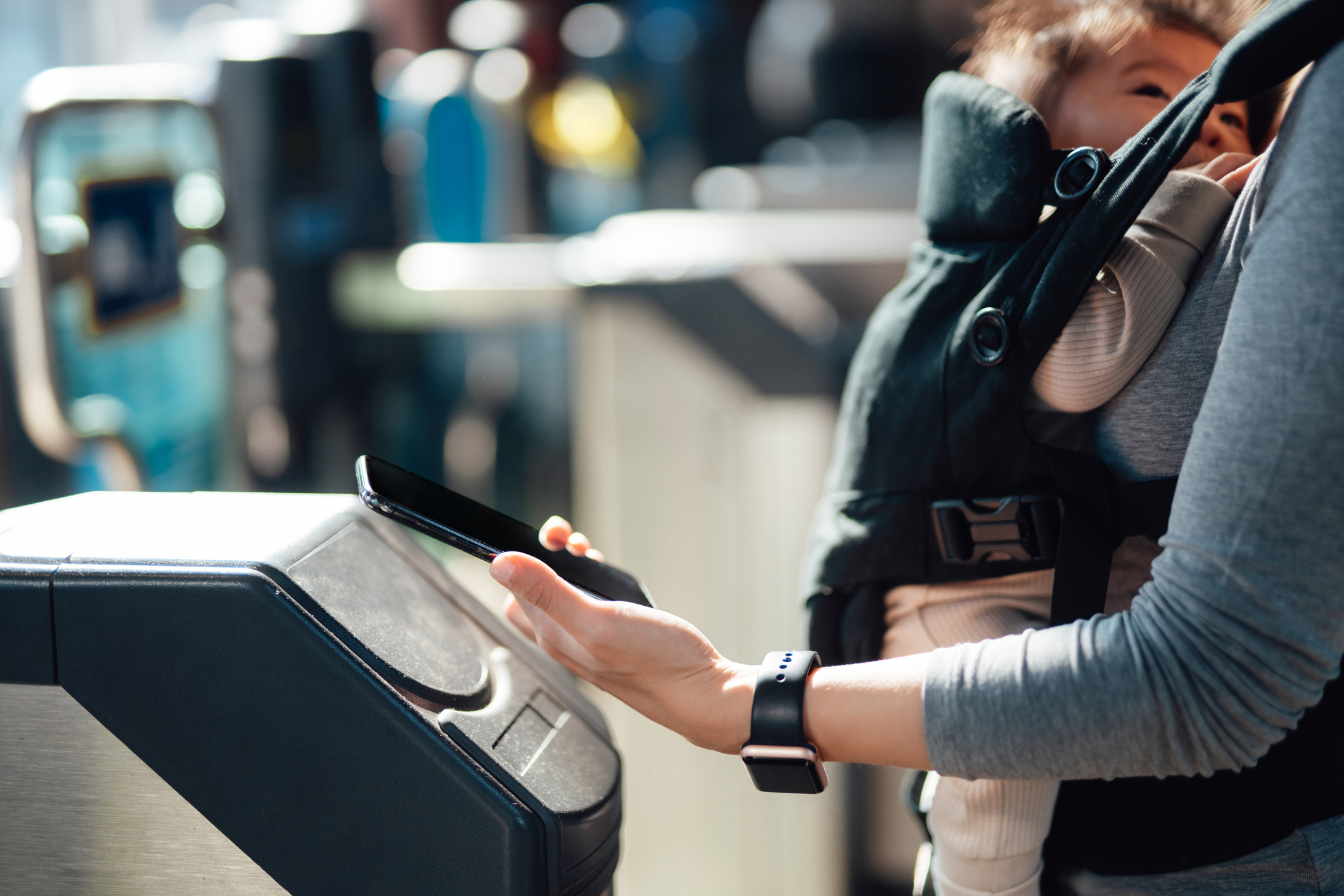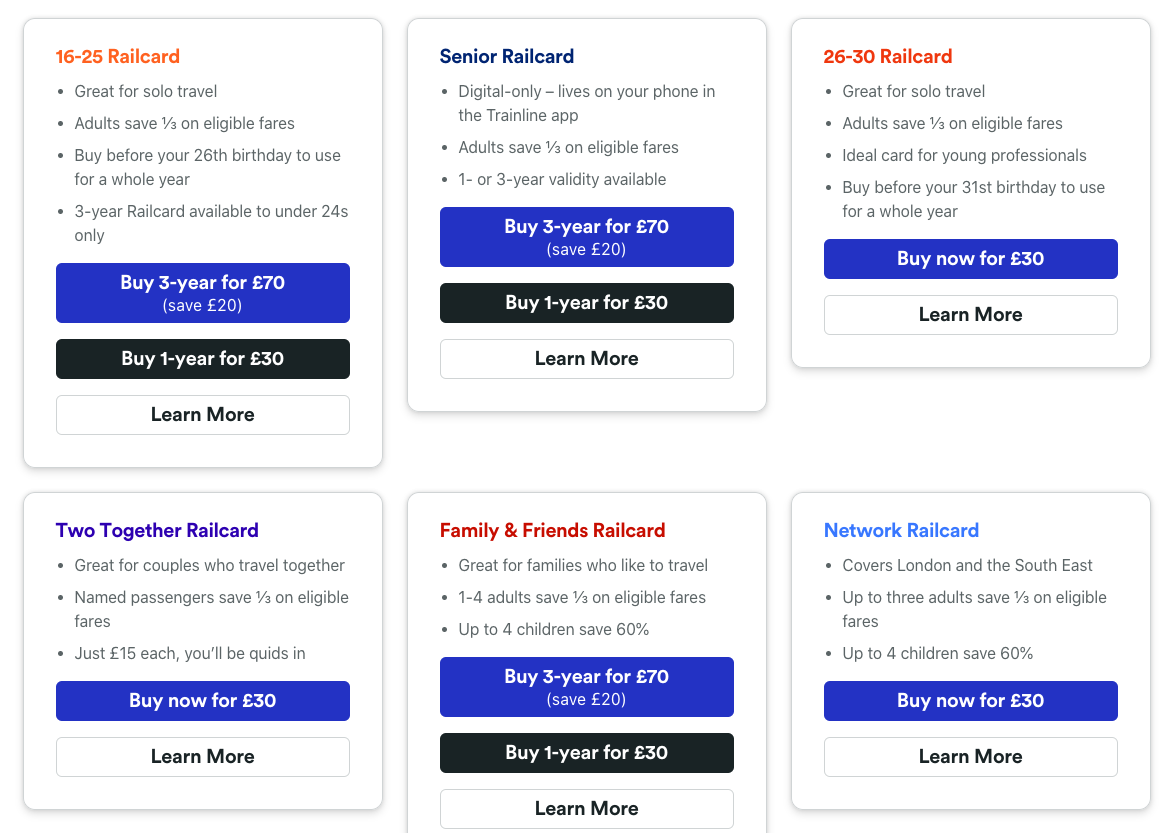
Parenting advice, hot topics, best buys and family finance tips delivered straight to your inbox.
You are now subscribed
Your newsletter sign-up was successful
Whether you commute to work, your kids go by train to school or you take regular rail journeys as a family, train travel in the UK isn’t cheap.
‘Regulated’ train fares, which include season tickets, will rise by up to 5.9% in March 2023. Fares normally increase in January each year, but this year’s price hike has been delayed until March to help people struggling with the cost of living crisis. There is also news of return train tickets being scrapped in favour of single journey pricing, leaving families worried about how much rail travel will cost in the months to come.
Almost 6% might sound a lot, but train travellers narrowly escaped an even bigger price hike as fares normally rise in line with inflation. But with inflation in double figures the government stepped in to stop rail fares going up this much.
David Sidebottom, director at independent watchdog Transport Focus, said: “No one likes prices going up. In our latest research, less than half of passengers think the railway currently performs well on delivering value for money tickets.
“After months of unreliable services and strike disruption, it’s clear that too many passengers are not getting a value for money service. Capping fares below inflation and the delay until March is welcome and will go some way to easing the pain, but the need for reform of fares and ticketing in the longer-term must not be forgotten.”
Train passengers are also being forced to cope with regular strike action at the moment, making train travel not just expensive, but unreliable too.
1. Book as early as possible to get cheap train tickets
You’ll usually find that tickets are available up to 12 weeks in advance, so note the date in your diary if you’re planning a trip and want to get the cheapest tickets. Network Rail usually releases a set timetable 12 weeks ahead of travel, but keep checking if tickets aren’t yet available to book. If you’re travelling with London North Eastern Railway (LNER), tickets may be on offer 24 weeks ahead for some journeys.
Parenting advice, hot topics, best buys and family finance tips delivered straight to your inbox.
Topcashback.com spokesperson Abigail Yearley said: “The Trainline has a free to use Price Prediction tool so you can roughly see when the cheaper tickets will sell out. Setting up email alerts for when tickets go on sale is another really easy and potentially cost-saving exercise to do.”
Of course, it’s not always possible to plan that far ahead, but advance tickets may still be available up until your travel date. However, book as soon as you can, as prices usually gradually rise over the weeks. Even if you’re only booking the night before, it’s worth doing so as you could potentially save money.
2: Opt for e-tickets
When buying tickets in advance, opt for print-at-home or e-tickets as this will save you the postage on getting your tickets mailed to you.
Train operators normally charge a pound or two for regular postage but last minute orders and special delivery postage can cost up to £5.
With e-tickets, you will get a QR code send to your email address and if you have your emails set up on your phone, you can just show that to the ticket inspector on the train or scan it to go through barriers.

3. Try splitting tickets
Long train journeys can be enormously expensive. But often you can cut the cost if you divide your journey by buying two or even three tickets covering different parts of the journey. This is known as ‘splitting tickets’ or ‘split ticketing’.
Rhiannon Philps, personal finance expert at NerdWallet, explained: “If you were planning to travel from Nottingham to London, it may be cheaper for you to get a ticket from Nottingham to Kettering, then another from Kettering to London. The tickets would be valid for the same train, but you’d present several tickets when prompted, rather than just the one.”
Which? previously found that it’s possible to save 52% on a journey from Ipswich to Sheffield, by splitting the ticket at Peterborough and Doncaster. You'd pay £94.30 for an anytime direct ticket, but just £45.26 for a ticket with these two splits.
There are several websites that make splitting fares easier. Check out TrainPal, TrainTickets.com, Split My Fare, and Split Your Ticket.
4. Avoid booking fees
When you’re booking train tickets on any website, check for extra fees, as you don’t have to pay these, and they can add up. You can find train tickets fee-free on London North Eastern Railway. Also check out RedSpottedHanky and Avanti West Coast for cheap ways to book ahead.
If you’ve a specific journey in mind, check a few sites to find the cheapest ticket you can. It should only take a minute or two, and since sites sometimes list different tickets, it’s worth doing to be sure you’ve grabbed the best deal.
A spokesperson for London North Eastern Railway (LNER) says: “Customers can book direct and reserve their seat, fee-free, and also find the best value fares using LNER’s mobile app or website. They can also sign up for LNER’s loyalty reward scheme, LNER Perks, which offers a number of exclusive benefits.”
5. Use a railcard - there's one for families and another for young people aged 16-25
Railcards slash a third off the majority of fares and cost from £30 a year. Check out Railcard.co.uk for the different types. You can easily find the one that’s most suitable for you using the search tool, putting in your location station, age, and whether you usually travel with kids.
For example, the Network Railcard offers a third off journeys in London and the South East, the 16-25 Railcard is specifically for younger people, and the Family and Friends Railcard cuts costs if you’re travelling as a group. Up to four adults and four children can travel together, with adults getting a third off fares, and kids getting up to a 60% reduction. That’s a massive saving on a big trip. You can even use your Tesco Clubcard points to get money off railcards.
Railcards are usually valid for a year and can be renewed online. They usually pay for themselves after a few uses, so they’re really worth having. If you’re a couple, the Two Together Railcard is another option that can save up to £129 a year on travel, and comes with special partner discounts.
Check out our sister brand MyVoucherCodes for Railcard promo codes to see if you can save even more.
In addition to Railcards, most train companies offer discounts for groups of three or more people travelling together. Larger groups of 10 or more people may even get additional discounts when booking tickets directly.

6. Take a coach instead
Sometimes it’s worth looking at other means of transport to get to your destination. For instance, it may be cheaper to get a coach instead of a train, especially if you’re not restricted by timings.
For example, you can get from London to Manchester for as little as £6.88 with Megabus – although the journey will take up to six hours, compared to just two hours on the train.
Students might also be able to get discounts on coach travel, for example they can save an extra 10% at Megabus with a Totum card.
National Express offers a Coachcard scheme which offers a third off fares. There are three options available: Young Persons Coachcard, Senior Coachcard and Disabled Coachcard.
What time of day are train tickets cheaper?
Train tickets are cheapest if you travel off-peak from around 09.30 to 16.00, and after 19.00 Monday to Friday. But the exact times depend on your train operator and location. The more flexible you are, the cheaper the tickets you’ll be able to find.
For example, if you wanted to get the train from London to Newcastle on 6 February, the 16.00 train would cost £108.90. But if you wait until the 18.18 train, you can get a ticket for £70.
Travelling by train from London to Newquay on 9 February would cost £131.70 if you got the 08.04 train – but the cost falls to £71.50 if you get the 12.04 train instead.
You’ll usually find weekends and Bank Holidays are off-peak all day. If there’s more than one off-peak fare for a journey, the cheapest one with most restrictions on when you can travel will be called ‘super off-peak’.
Generally, off-peak and super off-peak tickets apply during quieter times. The trains you can catch and times you can travel off-peak depend on the train operator, journey and date of travel. But bear in mind that they’re not as cheap as advance fares, which are available on a first-come, first-served basis. However, you don’t have to travel on a specific train with an off-peak ticket, unlike an advance ticket bought well ahead of your journey.

Do train ticket prices go up on the day?
Train operators usually release advance tickets around 12 weeks before the date of travel, and these rise in price up until the day. So, it’s best to book well ahead if possible. If you download the Trainline’s app, you can use its live tracker to find the cheapest prices right up until the day. To use this, type the two stations you are travelling between and search for trains for the day you want to travel. This will find the cheapest tickets for your journey. But remember not to book through Trainline to avoid booking fees (see above for sites that don’t charge these fees).
Some train operators let you buy advance tickets on the actual day of travel, if they haven’t already sold out, or the day before. So make sure to check if there are any available at a cheaper price before you travel. Remember, though, that advance tickets are for specific trains and are usually non-refundable.
How can I get my money back if my train was cancelled or delayed?
If the train you were meant to travel on is delayed or cancelled and you then don’t travel, you can claim a full refund. You should be able to get this immediately by going to the ticket office if you’re at the station. You can also claim a refund by post if you submit a claim form to the train operator within 28 days of the ticket’s date. Forms are usually found at ticket offices or you might be able to submit a claim online, which is the best option if you bought your ticket online or through an app. Go to the site you bought your ticket from, and find the refund section. Your refund should be with you within 10 days.
Even if you still took the train, you may be entitled to claim for delay. The scheme Delay Repay enables you to claim compensation if your arrival time is delayed for any reason. It entitles you to 50% of your ticket price if your arrival is between 30 minutes and an hour late, and a full refund if you’re more than an hour late. Some train operators also pay out 25% compensation if your train is delayed between 15 minutes and half an hour.
Can I get a refund if my train is cancelled due to a strike?
Train drivers who are members of RMT and ASLEF are among workers striking this month in ongoing disputes about pay and conditions.
If you have an advance ticket booked for a strike day and your service is cancelled, delayed or rescheduled, you are entitled to a refund. You'll need to contact the original retailer of your ticket to get your money back and provide a photo or screenshot of your ticket, including the barcode if you have an e ticket.
Adam French, personal finance editor at The Money Edit, says: “For single or return trips, if your journey is cancelled by strike action, or heavily delayed and you decide not to travel, you're entitled to a full refund from where you bought your ticket from.
“If the return leg is cancelled or heavily delayed by strike action, you should be entitled to a full refund under delay repay rules. Exact rules can vary between train companies. You shouldn't be asked to pay an administration fee and you don’t have to accept rail vouchers, even if you bought your ticket with a rail voucher.”
Video of the Week
- Emma LunnPersonal finance expert